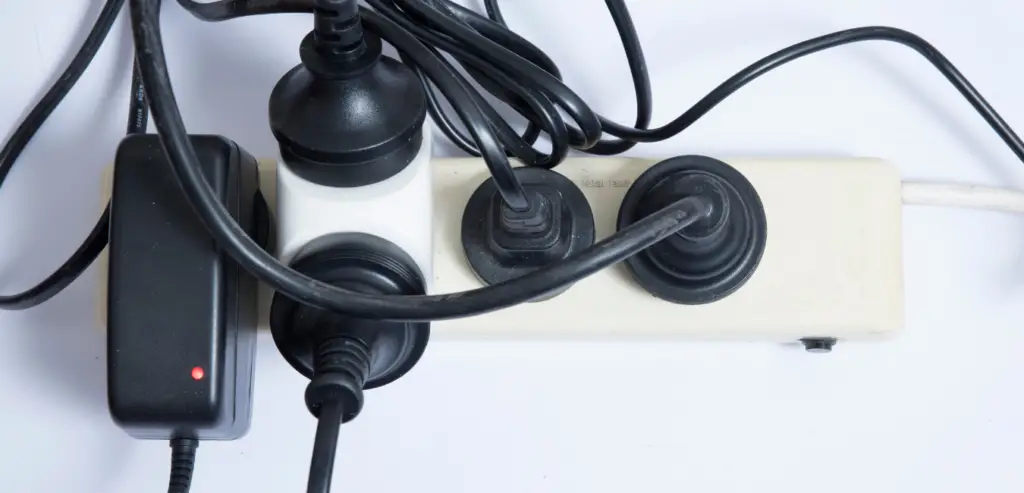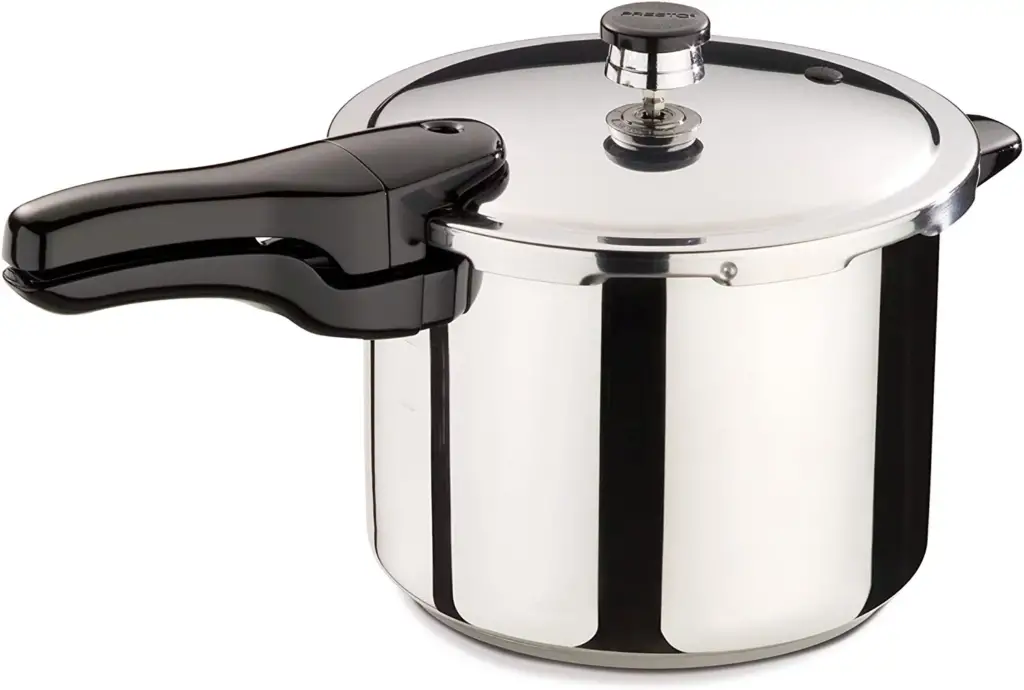Making your home more energy efficient can save you money and help reduce pollution. All of those appliances and lightbulbs might not seem like much, but they add up. There are so many ways to save electricity at home by reducing the amount of energy your home needs.
Reducing your energy needs helps to reduce the need for dirty fossil fuels. You will also save money on your electricity bill.
Electricity use is still a major environmental problem all over the world. Most of the electricity we use is still made from oil, natural gas, and coal, which are all types of fossil fuels. We get the fuel for this type of electricity generation from below the ground, which requires drilling and mining.
The International Energy Agency (IEA) says that in 2018, coal-fired power plants were the biggest cause of rising emissions. 30% of all CO2 in the atmosphere comes from the burning of coal to make electricity.
Similar: 27 Ways To Save Water At Home
25 ways to save energy and electricity
1. Check for energy-draining appliances in the home
Leaving some appliances plugged in even when they are not in use allows small amounts of electricity to be used while the appliance waits to be turned on.
You can observe if an appliance is using electricity because it has a “standby” setting or a small light that is on while it is waiting to be used.
Appliances such as TVs, video games and computers can use some electricity because they are plugged in even though they are not in use. Disconnecting these appliances from a power source can help you conserve energy.

2. Switch off appliances when not in use to conserve energy
Leaving appliances that are not being used running can drain energy. If you are not currently using an appliance, it is better to turn it off.
It is important that TV sets, radios, computers, games, and wall sockets are turned off when leaving the house. Doing this can save you a great deal of money and energy.
3. Use cold wash if you can
You should only use the warm wash if you really need it. One easy way to save energy is to avoid heating the water every time you wash your clothes.
With all the bells and whistles of modern washers and detergents made for cold washes, you’ll find that you can get your clothes clean with cold water very quickly.
4. Dry clothes and dishes naturally
To save energy, you can also stop using your dryer and dry your clothes in the sun. If you must use a dryer, try using a lower setting, even if it takes longer to dry.
If you have a dishwasher, use a napkin to dry your dishes instead of the heated drying cycle. You could also save money on the heat cycle by leaving the dishwasher door open and letting the dishes dry in the air. It’s fine to let dishes dry on their own; they’ll be just as clean.

5. Use energy-saving light bulbs
Switching from incandescent lights to compact fluorescent lamps (CFLs) or led bulbs is another great way to save money. CFLs use between 50 and 80 percent less energy than regular bulbs.
The first time you buy them, they will cost more than regular bulbs, which use more energy. But they will last a lot longer than regular ones. Because of this, the cost evens out over time as you save more energy. CFLs are especially useful for lighting outside, which you may need to leave on all night.
6. Turn off light bulbs when not in use
A simple tip is to remember to turn off lights you don’t need when you’re not using them. Use light bulbs with higher wattages and fewer bulbs in each room to save more electricity at home. For example, you can replace two or three 60-watt bulbs with one 100-watt bulb.
7. Use curtains and doors
In the winter, you can stop heat from escaping to the outside by putting up and using thermal curtains.
You can set the air conditioner to a comfortable temperature to keep the rooms you live in cool. But not too cold either, so the air conditioner can run only some of the time to save energy.
8. Use warm clothing around the house
When the winter months are approaching, the temperature starts to drop. While the temperature is still tolerable, you can make use of sweaters, blankets and socks to keep warm instead of turning on the heaters.
The heaters can be used when the weather gets too cold that but before then, using warm clothing can help you conserve energy.

9. Use large appliances as a group instead of individually
Your washing machine and dryer may be marked “energy-efficient,” but they still use up a lot of electricity every time you use them.
To save as much electricity as possible, do as much laundry as you can as a family or with your roommates by washing your clothes together in a full load. This will help you use the washer less often each week. If it helps, think about how much money you waste every time you wash only one or two items.
10. Invest in modern energy-saving appliances
If you want to purchase new appliances, look for one that is modern. These are the most energy-efficient. For example, in the EU, look for energy-efficient appliances with an A+++ rating and in the US, look for appliances with an Energy Star rating.
With each new appliance you buy that uses less energy, your total energy use will go down.
11. Invest in a programmable thermostat
People use electricity all day because they don’t want to come home to a house that’s too hot or too cold. With a programmable thermostat, you can set the temperature for different times of the day.
If your water heater stores hot water, you can also use a timer to heat it up an hour before taking a shower in the morning or washing dishes in the evening.
This method will help you avoid running your air conditioner or heater when you don’t need to, which will save energy.
12. Insulate the home and heating appliances
Adding insulation to some parts of your home may be the best way to make it use less energy. You can use the right insulation materials to insulate the floors, walls, basement, and attic.
Also, insulating your heating appliances can help them retain heat longer, thereby reducing energy. This is one of the easiest things you can do to save energy and money.

13. Cover up air leaks around the home.
Sealing air leaks is the quickest and least expensive way to save energy.
Before you put up any insulation, make sure there are no air leaks. Insulation won’t stop leaks. Air leaks can cause you to waste a lot of money on energy. Caulk, seal, and weather strip all seams, cracks, and openings to the outside.
14. Seal and insulate air ducts
Air ducts are important parts of your home, and if they need to be better sealed or insulated, they may be a reason why your energy bills are so high.
The duct system in your home is a network of tubes in the walls, floors, and ceilings that connect to each other. It moves air from your furnace and central air conditioner to each room. Sheet metal, fiberglass, and other things are used to make ducts.
If your ducts leak heated air into rooms that aren’t heated, it can cost you hundreds of dollars more a year to heat and cool your home. Insulating ducts in rooms that don’t have air conditioning is usually a very cost-effective thing to do.
If you are putting in new ducts, make sure their joints are sealed, and the ducts are insulated.
15. Use renewable energy
Solar panels are the most common way to get energy from the sun today. They can be used to make heat, electricity, and light both inside and outside.
You can also buy electricity from your utility company that is made from renewable energy sources like the sun, wind, water, plants, and geothermal.
Suppose you’ve already made your home as energy-efficient as possible, but your electricity bills are still high, and you have a good source of sunlight. In that case, you should consider getting a solar power system to make your electricity.
16. Reduce your refrigerator and freezer’s temperature.
Most of us don’t pay much attention to the temperature at which our fridge works as long as we have cold drinks and the food stays fresh, of course. But if you want to save energy, turning the thermostat down a few degrees saves electricity.
With a small change to the thermostat, your fridge will still keep things cold and fresh, and the engine will run using less energy resulting in lower energy bills.

17. Unplug your phones, tablets and other rechargeable devices when full.
It may be handy, but most phones can be fully charged in a few hours. The same is true for many other rechargeable devices.
So, if your phone is fully charged, leaving it plugged in for hours isn’t advisable. This wastes electricity and money.
18. Clean up your air conditioning, washing machine and dishwasher filters
Dirt gets into the filters of these appliances when you use them, which makes them work less well. By cleaning them often, you can help them work as efficiently as possible.
With dirt stuck in the filters, they use up more energy by performing at a higher rate than they ordinarily should get a better result. They do this while using up some extra electricity.
19. Use flasks to preserve tea or coffee
Freshly made coffee or tea may have a better taste for some, but many don’t even notice the difference provided the drink is hot.
You can boil water for tea in the morning and save it up in a flask to use for the whole day instead of boiling water every time you need a hot drink. By doing this, you will save energy in your home.
20. Opt for pressure cookers
A pressure cooker is a sealed container that traps the steam that is made when the food inside is heated. As steam builds up, the pressure goes up. This makes the boiling point of water rise above 212°F. In general, this higher temperature shortens cooking times and gets more flavor out of foods because less water evaporates.
Using a pressure cooker instead of normal pots will make your food cook faster, thereby saving you energy and money. An additional perk is that you will be able to satisfy your hunger quickly.

21. Chill or heat only the rooms you are using.
You can turn on and off individual radiators or air conditioners. For example, if you are in your bedroom throughout the day, you don’t need to heat or chill your bedroom.
It is really a waste of energy to heat up or cool the whole house if you’ll only be in the sitting room the whole day.
22. Take shorter showers
This seems like a tip for water efficiency, but it is also very efficient in conserving energy, especially when it is a warm shower. Using less water when showering reduces the amount of energy that goes into reheating the replaced water in the heater.
23. Plan your meals
If you know what you’re going to cook ahead of time, you can use the time when the oven and stovetop are on.
Instead of turning the oven on twice and waiting for it to heat up, you can cook more than one thing at once and shorten the amount of time it’s on.
24. Upgrade your boiler
Modern boilers use less energy than older boilers, so they should heat your home better. Combi boilers can be the most energy-efficient type of boiler, but this depends on how much hot water they use on a regular basis.
25. Go out!
Get off that couch and take a walk. While at it, turn off all appliances in the home (except your freezer) and enjoy the sun, the wind and the sand.
Make new friends. Hang out. You’ll be surprised how much you’ll save by being outside when compared to being at home all the time. You will also feel refreshed, energized and mentally fit. It’s a win-win.

Final words
If you’ve been finding it hard to save energy around the house, these tips could help you use less energy. While using less energy can help you save money, you’ll also be achieving a larger goal by helping the planet remain safe and reducing carbon emissions.
Related posts:
- Harnessing the Power of the Sun: A Guide to Solar Installation - February 12, 2024
- Vacuum Trucks: The Unseen Heroes of Waste Management and Their Environmental Benefits, Featuring McDonald Farms - December 11, 2023
- Satellites And Climate Adaptation: Solutions From Space - December 1, 2023







3 thoughts on “25 Ways To Save Electricity And Energy At Home”